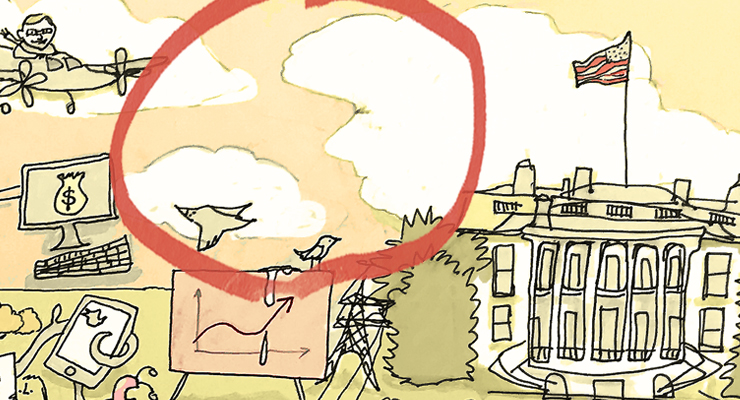The founder of America’s biggest fact-checking site used to be wishy-washy about calling something a lie. No longer.
Welcome, Oz. Welcome to the ugly reality of falsehoods in the 21st century.
I naively thought the digital revolution would mean truth would be defeating lies by now, but I’m afraid the truth is still lagging.
I’m the founding editor of PolitiFact, the largest fact-checking site in the United States. I came to Sydney in 2013 to start PolitiFact Australia because your wonderful country met my two criteria for expanding our fact-checking: the articles would be published in English, which enabled me to assure our quality journalism; you had great beer.
I quickly saw that your journalists wanted to follow our lead and catch politicians who exaggerate and say things that are not true. And, sure enough, PolitiFact Australia kicked off an energetic fact-checking movement in Oz that continues today.
That’s because there’s a need. Your politicians, like ours, are getting quite adept at saying things that are not true. I saw that start in the days of Julia Gillard and Tony Abbott, and I hear that your problems are worse today.
I feel your pain. The United States lived through four years of Donald Trump’s falsehoods and then, after he lost the election, we endured a crazy two months with so many bogus claims about the ballot counting that they collectively became known as “The Big Lie”.
The Trump presidency and the avalanche of falsehoods prompted a reckoning about our terminology. There’s been debate about whether fact-checkers and political reporters should use the term “lie” (which the dictionary defines as “to make an untrue statement with intent to deceive”) or just stick to calling statements false.
In the US, some fact-checkers and mainstream outlets occasionally used “lie” to describe Trump’s ridiculous claims. Glenn Kessler, The Washington Post fact-checker, used the word in 2018 when he became convinced that a plea deal with Trump confidant Michael Cohen proved Trump had lied about hush money to porn star Stormy Daniels and Playboy model Karen McDougal. The New York Times began using the word in some news and analysis stories in 2016.
PolitiFact doesn’t regularly use this word, but it does have the “lie of the year” award (an honour no one wants to receive) and a “pants on fire” rating (reserved for the most ridiculous falsehoods).
I used to be wishy-washy about calling something a lie. I was more concerned with the substance of debunking a falsehood than the noun we used to describe it. But after seeing how the false claims damage our discourse and erode democracy, not just in the US but around the world, I’m more willing to use the word.
In fact, I’m now writing a book. The topic: lying in politics.
Bill Adair is the founding editor of PolitiFact, and Knight Professor of the practice of journalism and public policy at Duke University, North Carolina.

Help us keep up the fight
Get Crikey for just $1 a week and support our journalists’ important work of uncovering the hypocrisies that infest our corridors of power.
If you haven’t joined us yet, subscribe today and get your first 12 weeks for $12.
Cancel anytime.
Peter Fray
Editor-in-chief of Crikey







